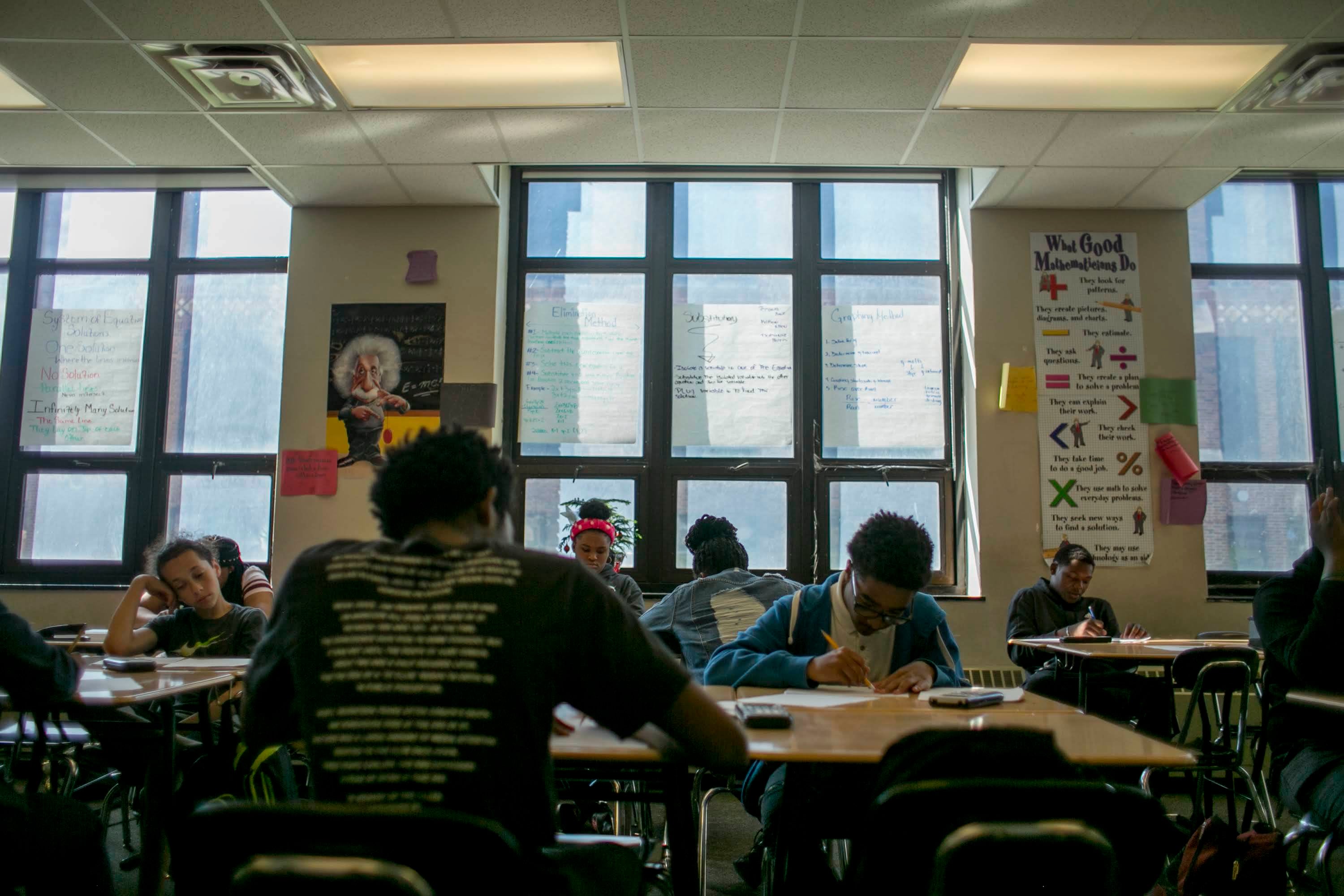About 20 Detroit teens last summer set out to answer some important questions about how their peers are dealing with mental health struggles.
These high school students, part of a city youth organization called Local Circles, wanted to know two things about their peers: How they practice self-love, and how they find peace in a world in which they constantly feel judged.
They are relevant questions. Schools across Michigan are struggling to address the mental health needs of students. Those troubles existed before the pandemic, but the isolation, lingering effects of remote learning, and challenges coping in the midst of a global health crisis have deepened them.
The Detroit teens detailed their findings, and in some cases confronted their own mental health worries, in written pieces. Chalkbeat is publishing excerpts of those pieces today.
Local Circles is an organization that employs young people to research issues that are important to them. Nicole Jurek, the executive director of the organization, wrote in her own piece that adults too often think of young people in terms of what they can do in the future. But they have a voice today, she said.
“Young people have value (intrinsically, as we all do) for what they can do now, in their youth,” she wrote.
Read the pieces below from high school students TaMyra Smith, Torrance Johnson, Amaya Nard, Drew Smith Jr., and Stephanie Haney.
When depression takes control
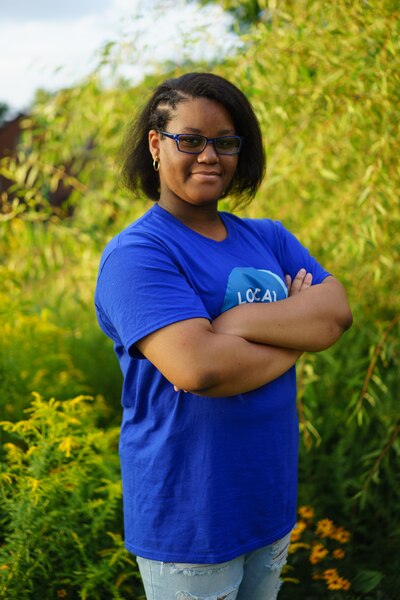
There was a time in my life where the bad days outweighed the good days. Depression took control over my emotions, school became more depressing by the minute, I faced personal problems at home, and, worst of all, COVID had just come out. I could see that I wasn’t the only kid dealing with these issues, yet since 2020, our tears have been hidden in the crowd, and there are fake smiles everywhere.
I’ve heard people say, “Life isn’t all that bad,” and that might be right. But if that were true, we would have more mentally stable teens in this world. Unfortunately, it is the other way around. It has gotten to the point where we’ve all become distant from one another, with no one to talk to, so that pain is just sitting within. A friend of mine once said, “The world feels like a ton of bricks have just landed on my chest, and the load won’t get any lighter.” Why should we have to live like this if we’re the future? What are we supposed to do in order to make life a bit easier for us?
“The pandemic has done a number on me. I don’t and can’t go anywhere, can’t sleep some nights, always see the negative before the positive, and I doubt almost everything and everyone around me.” — TaMyra Smith
About six months ago, a few of my old friends from middle school and I got back in touch via Instagram. Man, oh man, did it feel like we were getting to know one another all over again, and the energy wasn’t the same at all. By the way they talked, I could feel and hear the sadness in their voices while trying to hide what was deep down. I’m not the smartest, but I can tell when something is wrong.
The pandemic has done a number on me. I don’t and can’t go anywhere, can’t sleep some nights, always see the negative before the positive, and I doubt almost everything and everyone around me. Just recently, I had five assignments from four different classes that had to be completed the same day. I convinced myself that all of it wouldn’t get done, and I was right. And then I received a C in three of those classes since the work was turned in late. See what I mean?
Just the thought of school makes you wish it was already Friday again. More work, more engaging with your classmates, sometimes I don’t even want to talk. Many of my peers say that they’re being overworked, as if this is college, and I agree.
There is only so much teens can take before we begin to not care and want to give up. You never know what goes on in our heads. It could be built up stress and anger that will soon be released. Us teens need to come together, build our own safe environment and stop going against one another.
TaMyra Smith is a sophomore at the DPSCD Virtual Academy in Detroit.
Music as love and therapy
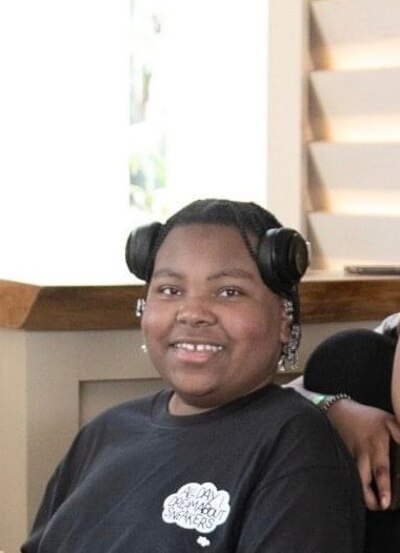
What makes me feel the most like myself? If you were to look at me, the first thing you would see is the bulky power chair I’m in. For me, my power chair, or rather my disability, is a key part of my being, as the chair and I operate as one. The chair is the first thing most people notice, but that isn’t necessarily a bad thing as I feel it’s one of my defining characteristics.
Beyond seeing it, whenever I move you can hear the whirring of my chair as my wheels go around. Once someone gets to know me, the chair will become what I use to go from one place to the next. However, this can cause me to struggle to view myself as an individual separate from my chair. I have found a way to remedy this, and I’ve found it in music.
“You don’t have to play like Bach or Beethoven to make something beautiful or something that allows you to let feelings out.” — Torrance Johnson
When I’m creating music there’s no wheelchair, no disability, there’s just me and a piano keyboard where I’m free to let my heart and soul create. Music is my love, my therapist, my peace, my freedom. To explain why I feel such relief and freedom in making music to express myself, I asked music therapist Matthew Bessette. “When you’re creating music, you connect with your emotions and express them on a different level of understanding and connection,” he said.
When using music to express yourself, there’s no right or wrong way to do it. You don’t have to play like Bach or Beethoven to make something beautiful or something that allows you to let feelings out. Since I started playing the piano in February, it has become a passion of mine and something I love to do.
While crafting the survey, my peers and I would meet once a week at a facility in Detroit. I couldn’t wait to go there and was typically the first to arrive. In the facility, there was a piano I would play while I anxiously awaited the arrival of my cohort.
I’d begin by playing a single note which can sometimes be the beginning step in describing how you feel. I’d glide my fingers across key by key, letting the anxiety flow from me into the piano, and what came to exist was beauty and freedom. The piano from left to right goes from low to high. As you might guess, a person who is sad would play slow, somber notes compared to a happy person playing upbeat lively notes. I typically experiment with different notes and chords that I don’t always know will reflect the emotion of my heart, brain and soul.
For however long I play, I feel safe and unjudged. I simply feel peace! And that is more than okay with me. Playing allowed me to give my burdens away and be able to enjoy being there in the moment with my cohort.
Torrance Johnson is a junior at Clarenceville High School in Livonia.
Families must practice and model self-love
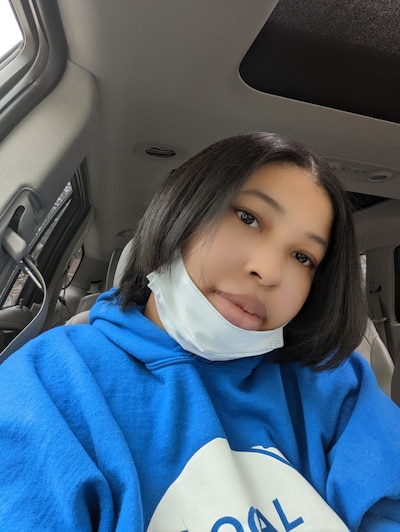
One of the findings that stood out to me from the students we surveyed last summer was that people who said they had a positive view on self-love also had someone older in their life who told them the importance of self-love.
My experience with self-love was different. The importance of self-love was a foreign concept for me growing up. Things like rest and relaxation were not allowed for children in my environment. I often saw adults using unhealthy forms of coping, like substances, instead of practicing self-love. I didn’t follow their example. But I can’t say the same for other children in my family. That’s not to say I wasn’t affected. Self image issues are something that I struggle with a lot. According to our survey, the older people got, their view on self-love became more positive. This makes me think that your environment as well as the people around you growing up can affect your view on self-love.
“Everyone should understand that children needing rest isn’t laziness and parents taking care of themselves is not selfishness.” - Amaya Nard
As children we follow the adults in our lives. Learning the importance of self-love in your most formative years will have an effect on how you view yourself then and in the future. Having positive influences in your family can reduce stress and conflict, according to a 2022 study in the journal Wellbeing, Space and Society. Besides family, your environment also plays a role in your well-being. Things like stable housing, food security and overall safety can affect if you practice self-care. That being said, while family and your environment can play a role in how you care for yourself, the main thing is really how you feel about yourself.
Everyone should understand that children needing rest isn’t laziness, and parents taking care of themselves is not selfishness. Learning how to love yourself can be challenging, but having supportive people in your life can help a lot. Even if you don’t have people in your life like that, you can be that person for yourself.
Amaya Nard is a senior at My Virtual Academy.
‘Alarming’ data on youth depression
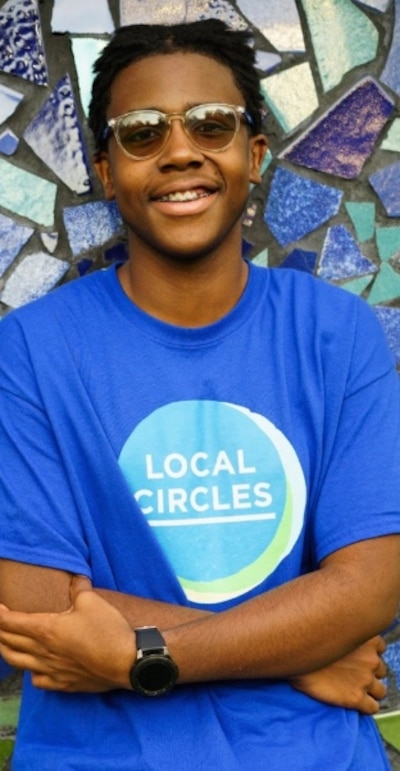
Teens go through a lot, and have been especially impacted by COVID. Sometimes adults might brush off what teens say and feel, and think that we don’t know better. We have the same feelings they do, and we wanted teens to know that they are heard and important.
A 2022 report from Mental Health America found that in Michigan, nearly 17% of youth ages 12-17 had a major depressive episode in the previous year. That’s higher than the national average, which was around 15%, or 3.7 million youths.
The data are alarming.
Here’s what we found after surveying our peers:
A lot of teens practice self-care by relaxing, there were a lot more people who had good relationships with self-love than people who didn’t, and more younger kids had negative relationships with self-love than the older ones. We concluded that as people grow older, they learn to love themselves more.
When practicing self-love, females will say motivating quotes about their beauty and looks, while males did not really have anything motivating to say other than, “You got this.” Female teens had deeper responses to the open-ended questions. Ultimately, we learned self-love impacts what you do in a day, how you react to people, and how much confidence you have.
“Respondents said things like, “I am loved,” “I am worthy” and “I am beautiful/handsome.” Ever since then, I’ve tried to implement “I am” statements into my everyday life to let myself know what I am.” — Drew Smith Jr.
These findings really made me think about myself and how I practice self-love. What I do to calm down and relax is lay down in my bed and watch a TV show that I enjoy. I never really thought about that being self-love until then. Spending time with my friends and family is also a way I practice self-love.
I started to ask myself, “What can I do to improve love for myself?” Then I remembered one of the questions we asked in the survey: “What are some motivational things you say to yourself?” Respondents said things like, “I am loved,” “I am worthy” and “I am beautiful/handsome.” Ever since then, I’ve tried to implement “I am” statements into my everyday life to let myself know what I am.
I’m so grateful for this experience, memories and knowledge learned this summer. And if any teens are reading this in the Detroit area, I want you to know that you are loved and you are heard and that Local Circles cares about you.
Drew Smith Jr. is a junior at Metropolitan Junior Academy in Plymouth.
Seek help when you need it
At times you may not have the best mental health or you won’t love yourself as much as you would like to, but that doesn’t have to stop you from being you.
“If there is no bright side, make one.” — Stephanie Haney
Over time you will go on a self discovery to understand yourself better and what makes you happy. Keep negative things out of your life, and if they keep coming back, take a different route to keep them away. There are going to be SO many ups and downs in your life. Try to look at the bright side of things and see how it will make you better. If there is no bright side, make one. Think of a positive situation and stick with it.
If you need help, call or text the mental health hotline at the number 988 (Michigan’s access line to the National Suicide Prevention Lifeline).
Stephanie Haney is a junior at Cass Technical High School in Detroit.
Lori Higgins is the bureau chief for Chalkbeat Detroit. You can reach her at lhiggins@chalkbeat.org.

